Editor:
Brandon Sweet
University Communications
bulletin@uwaterloo.ca
Senior administrators begin administrating
July 1 marked the start of a number of administrative appointments, and in some cases re-appointments across the University.
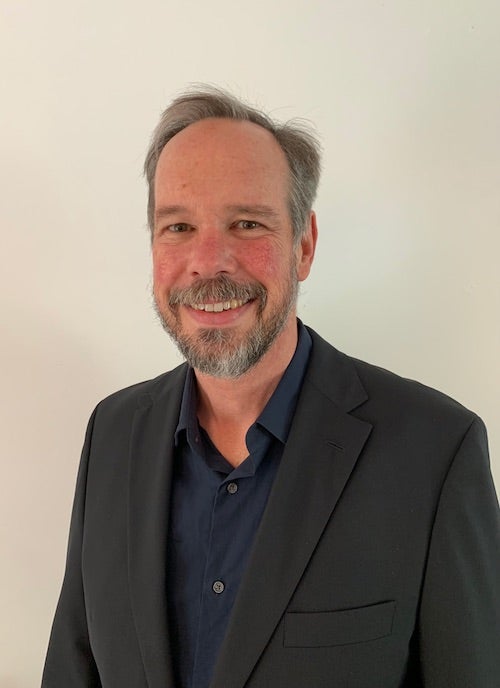
Professor Bruce Frayne began his term as Dean of the Faculty of Environment on July 1. Prior to his appointment, Frayne was a tenured, full professor at the Waterloo serving a second term as the Director of the School of Environment, Enterprise and Development in the Faculty of Environment.
Frayne is an urban planner, geographer, and senior member of the university administration. He holds a Bachelor of Arts from the University of Natal (now University of KwaZulu-Natal), a Master of City and Regional Planning from the University of Cape Town, both in South Africa, and a PhD in Geography from Queen’s University.
Frayne served as an assistant professor at Queen’s before joining the University of Waterloo in 2010 and was appointed as a full professor in 2019. In addition to leading the Sustainable Development Goals (SDG) Canadian Cities Index project, Frayne works in Sub-Saharan Africa and cities of the Global South. He has served as a member of Waterloo Senate (2012 to 2014) and on other bodies at the university, Faculty, and unit levels, along with several external boards, committees, and advisory bodies.
Frayne succeeded Professor Jean Andrey, whose term ended June 30, 2022 after serving nearly eight years at the helm of the Faculty.
Other academic and administrative appointments that began on July 1 or will begin shortly include:
Faculty of Arts
Professor Jay Dolmage has been appointed Chair of English Language and Literature for a term ending June 30, 2026.
Professor Scott Kline has been appointed as Chair of the Department of Religious Studies in the Faculty of Arts for a term ending June 30, 2026.
ProfessorGrit Liebscherhas beenre-appointed as Interim Chair, Department of Communication Arts for a term ending June 30, 2023.
Professor Elizabeth Nilsen has been reappointed Interim Assistant Vice-President, Graduate Studies and Postdoctoral Affairs for a term ending June 30, 2023.
Professor Robert Park has been appointed as Associate Dean, Co-operative Education and Planning in the Faculty of Arts for a term ending June 30, 2025.
Professor James Skidmore has been appointed as Chair of the Department of Germanic and Slavic Studies for a term ending June 30, 2026.
Faculty of Engineering
Professor Maya Przybylski has been appointed as Interim Director for the School of Architecture for a term ending June 30, 2023.
Professor Siva Sivoththaman begins an appointment as Associate Dean, Graduate Studies and Postdoctoral Affairs on August 1, 2022 for a term that concludes on July 31, 2025.
Faculty of Environment
Professor Neil Craik has been appointed Interim Director of the School of Environment, Enterprise and Development for a term ending December 31, 2023.
Professor Susan Elliott has been appointed Interim Chair of Geography and Environmental Management for a term ending June 30, 2023.
Professor Johanna Wandel has been appointed Associate Dean, Undergraduate Studies for a term ending June 30, 2025.
Faculty of Health
Professor Craig Janes has been reappointed Director, Public Health Sciences for a term ending August 31, 2022.
Professor William McIlroy has been appointed Associate Dean, Research for a term ending June 30, 2023.
Faculty of Mathematics
Professor Benoit Charbonneau has been reappointed Associate Dean, Undergraduate Studies for a term ending June 30, 2023.
Professor Anita Layton has been appointed Associate Dean, Research and International for a term ending June 30, 2023.
Professor David McKinnon has been reappointed as Chair of Pure Mathematics for a term ending June 30, 2026.
Professor Chaitanya Swamy has been appointed as Chair of Combinatorics & Optimization for a term ending June 30, 2024.
Professor Changbao Wu has been appointed Chair of Statistics and Actuarial Sciences for a term ending June 30, 2026.
Faculty of Science
Professor John Corrigan has been appointed as Chair of Chemistry for a term ending June 30, 2026.
Affiliated and Federated Institutions of Waterloo
Professor John Abraham has been appointed Academic Dean of St. Paul’s University College for a term ending June 30, 2026.
Professor Trish Van Katwyk has been appointed Director of the School of Social Work for a term ending June 30, 2025.
Chemistry welcomes John Corrigan as new Department Chair
This article was originally featured on the Faculty of Science news site.
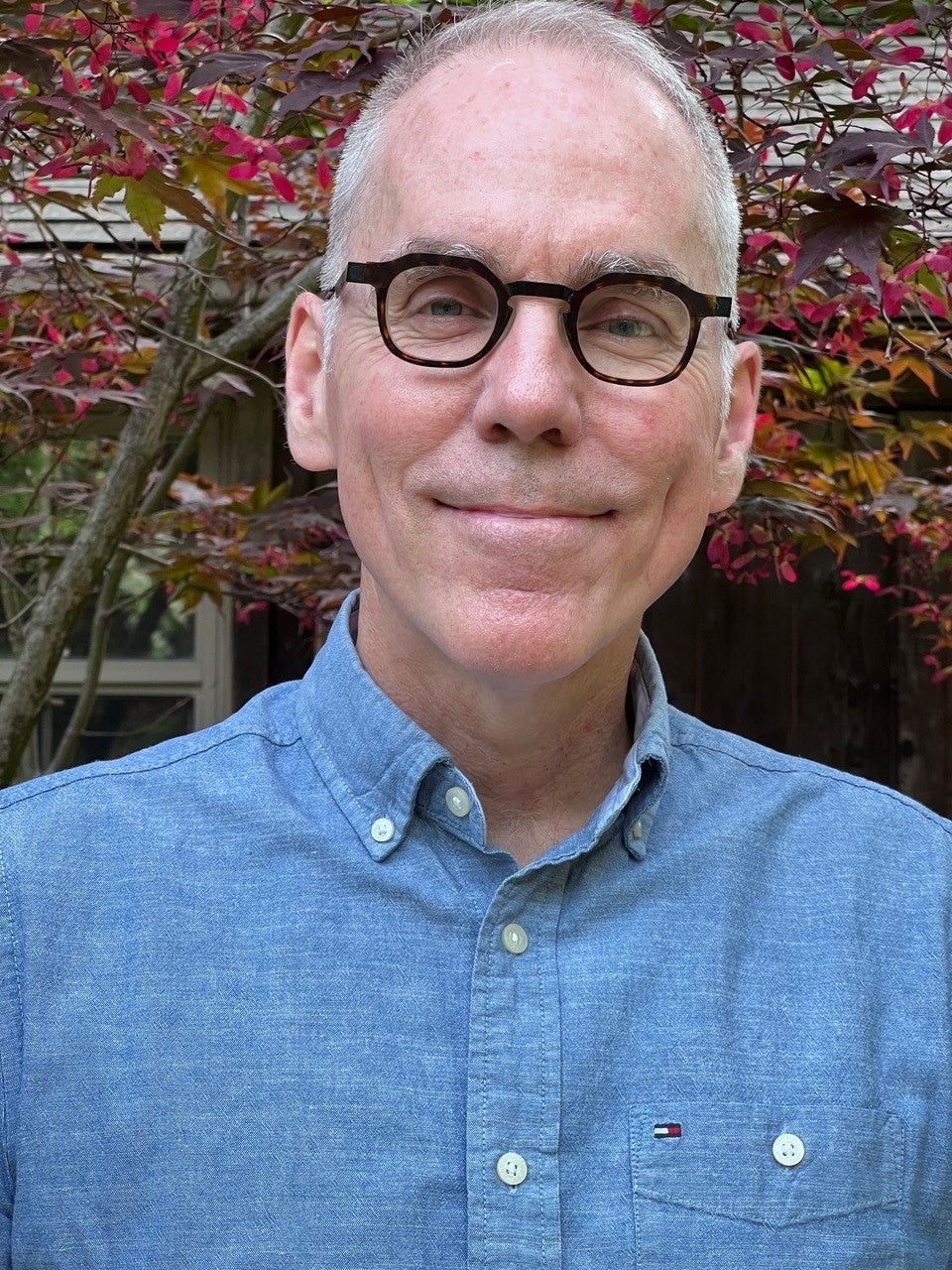
Professor John Corrigan began his four-year term as Chemistry's new Chair on July 1. Corrigan joins Waterloo from Western University. He is the 15th Chair for the Department.
“John is an outstanding scholar and leader. He is an excellent fit to the role of Chair of Chemistry and he knows UW well, having earned his PhD with Arthur Carty in 1994," Bob Lemieux, Dean of Science. "I very much look forward to welcoming John to our Science leadership team.”
His research interests are located on the frontiers between coordination chemistry, materials chemistry and nanosciences: his team targets atomically precise (nano)clusters via the design of molecules that are incorporated into higher order architectures.
His research program focuses on the design of new reagents for the assembly of metal containing molecular species, which include nanometer sized, semiconductor architectures with specialized properties (functionalization).
The functionalities are incorporated into (or onto) the frameworks via a molecular precursor approach whereby small molecules are designed, prepared and integrated into higher order structures via controlled assembly. The preparation of such well-defined (re: size, shape and composition) results in molecular architectures with size-dependent properties and potential applications in areas encompassing energy (eg. photovoltaics), medicine (eg. bio-labels) and catalysis. Research in his laboratory works within a continuum of molecule to cluster to nanomaterial.
Corrigan has held several leadership positions during his career. He was the inaugural Director for the Centre for Advanced Materials and Biomaterials Research (CAMBR), which brings together more than 50 research groups to tackle key materials challenges. He was the Associate Chair Undergraduate in Chemistry and a mentor to new faculty. Additionally, he has served on numerous departmental and university committees.
He completed his B.Sc. studies in Chemistry at the University of Toronto and obtained his Ph.D. at the University of Waterloo under the guidance of Prof. Arthur J. Carty. After a NSERC post-doctoral fellowship in Germany at the Universität Karlsruhe (now Karlsruhe Institute of Technology) with Dieter Fenske, he joined the Department of Chemistry at Western.
"The make-up of my alma mater’s campus has changed significantly since I graduated. What has not changed is the tradition of innovation and excellence in teaching and research in the Department of Chemistry," said Corrigan. "I am humbled and excited to return to Waterloo as Chair of this awesome department and I look forward to working together with all of the students, staff and faculty that make this place great."
Please welcome John back to the University of Waterloo.
Statement on incident at Claudette Millar Hall
Waterloo Regional Police have made an arrest in connection to a violent incident that occurred in Claudette Millar Hall on the evening of July 6. The victim sustained non-life-threatening injuries and received hospital treatment.
"We are fortunate that violent incidents on the University of Waterloo’s campuses are extremely rare," says a University statement. "The University of Waterloo is a safe place to live, learn and work. We understand the individuals involved in this incident knew each other and we have no concern for the safety of any other individuals. We have processes in place to safeguard our campus following incidents of this nature."
"The safety and well-being of our students is always our top priority. We are grateful for the swift action from Waterloo Regional Police Services, our Housing team and our Special Constable Services who worked together to ensure that our residence remained safe and secure."
"We are in touch with the victim and their family to ensure we can provide support to them at this difficult time. Our Housing and Campus Wellness teams are working together to provide support to anyone who feels uncomfortable, notices someone struggling, or needs support or self-care."
We encourage members of the campus community who feel they need support to contact any of the following resources:
- Students: If you feel overwhelmed or anxious and need to talk to somebody, please contact the University’s Campus Wellness services, either Health or Counselling Services.
- Employees: Our Employee and Family Assistance Program is available 24/7 for counselling, coaching and support. Call 1-800-663-1142 or visit Homeweb.ca.
These community supports are available as well:
- Here 24/7 - 1-844-437-3247
- Grand River Hospital - 519-749-4300
- St. Mary's Hospital - 519-744-3311
- Good2Talk - 1-866-925-5454
- Crisis Services Canada - 1-833-456-4566 or by text 45645
- Empower Me (1-844-741-6389)
- MATES is a one-to-one peer support program that provides services to students who are experiencing personal or academic concerns or low-level mental health and wellness difficulties
The UW Special Constable Service partners with Counselling Services and the Canadian Mental Health Association to implement IMPACT (Integrated Mobile Police and Crisis Team). IMPACT is a program that has a trained mental health professional working out of the UWSCS offices to assist community members who may be struggling. IMPACT workers provide Mental Health care in after-hours settings when counselling is unavailable. IMPACT workers are available by contacting the UWSCS at 519-888-4911.
How various face coverings can affect communication
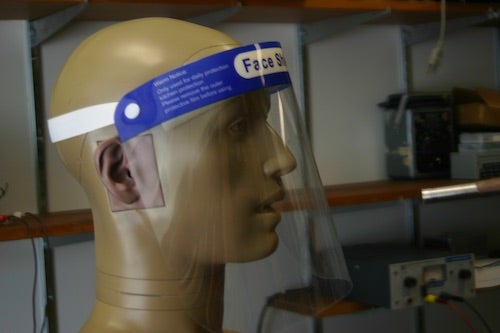
Although mask mandates have been lifted in most settings across the province, many people are still opting to wear a mask for various reasons. According to a new study from Professor Emeritus of Physics John Vanderkooy, however, many of these masks may be impeding our ability to communicate effectively.
Though Professor Vanderkooy officially retired formally in 2006, he continued to supervise a few students and kept a small lab in Physics. He is a member of the Audio Research Group, which has over the years been involved in monitoring the acoustics of sound with focus on microphones, loudspeakers, and signal processing.
The group has made some studies of binaural sound using a Knowles Electronic Mannequin for Acoustic Research (KEMAR): an anthropological mannequin of a human torso and head with anatomically correct ears fitted with microphones, as well as a modified mouth that emits speech signals with a small internal loudspeaker. Though the sound it produces is not the same as human speech, Professor Vanderkooy measured the effect of a mask on KEMAR without and with a mask. This allowed the group to accurately measure the effect of the mask on any speech.
When it comes to speech intelligibility, important frequencies lie in the range 300 - 3000 Hz, with a nice crispness to speech registering at around 5000 Hz. By using the KEMAR, the group determined that many masks remove significant audio level above even 1500 Hz.
Several kinds of masks were tested: a common blue paper fibre mask, a 3M bowl-shaped masks, some cloth and N95 masks, a singer’s mask, and a face shield. Cloth and N95-type masks stifle the human voice in the 1.5 – 2.5 kHz range somewhat more. The 3M bowl mask had a huge peak at 8 kHz which actually amplified the sound, due to the resonance of the bowl cavity. The high mass/unit area of the face shield can be shown to attenuate sound above about 500 Hz. It is found to be the most limiting when it comes to communication, as it removes much of the sound above 800 Hz.
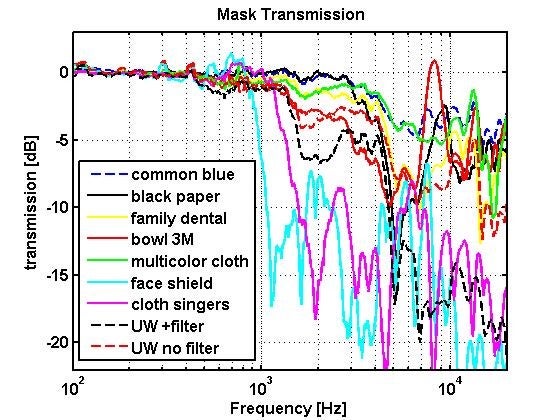
The blue paper fibre mask was found to have the least acoustic blockage. While these masks don’t greatly impede sound, they seem to be least effective in stopping the spread of virus containing aerosols.
Unfortunately, the ideal mask for effective communication doesn’t currently exist. Professor Vanderkooy says the best solution would be a mask with a very thin layer of transparent plastic placed in an opening of the mask. This covers the mouth and could be acoustically transparent, but impervious to virus transmission. The low-inertia plastic would move effortlessly with the sound vibrations, transmitting all the sound into the air outside the mask. The cloth side of the mask (responsible for the filtering action) could be held slightly separate from the skin near the mouth.
For now, we may have to settle for speaking up when wearing a mask for a conversation with ideal speech intelligibility.
Remembering Dr. Gail Corning
A message from the Faculty of Arts.
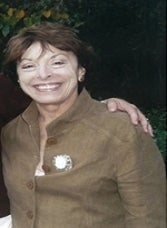
The family of Dr. Gail Corning, alumnus and former instructor in the departments of English Language & Literature and Communication Arts, would like to share that Dr. Corning passed away on July 2, 2022, following a stroke in mid-June. She is survived by her husband, Professor Emeritus Bill Corning of the Department of Psychology.
Dr. Corning was one of the first students to enter the English PhD program at UWaterloo, defending her dissertation just before her 60th birthday. She went on to teach courses in both English and Communication Arts, once commenting: "At this stage in my life, this is what I want to do. I will probably keep it up until I cannot walk anymore. Infusing rhetorical theory into my teaching helps students understand that communicating is not about them, but about their audience. Those who grasp this concept gain a valuable lifelong skill."
Members of the University are welcome to attend the memorial service for Gail Corning at The Cedars in Waterloo on Sunday, July 10 at 7:00 p.m.
Friday's late-breaking notes
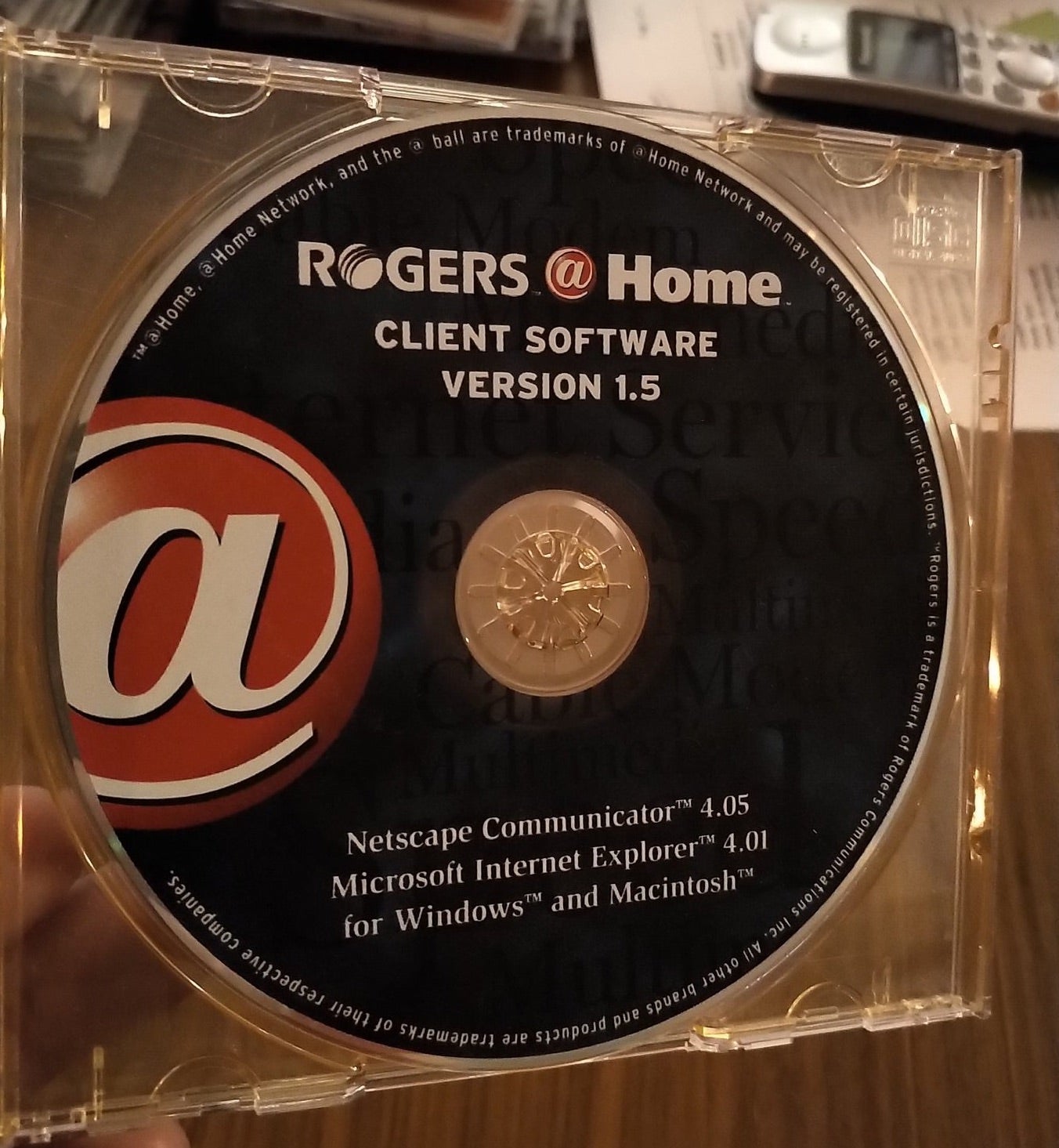 Much of the country appears to be without Internet and wireless services today as Rogers networks are currently down for the count. As such, some campus services are experiencing technical difficulties, such as Interac and credit payment options. The Eduroam network is not impacted, and Food Services reports that WatCard payments are working at locations on campus that accept it.
Much of the country appears to be without Internet and wireless services today as Rogers networks are currently down for the count. As such, some campus services are experiencing technical difficulties, such as Interac and credit payment options. The Eduroam network is not impacted, and Food Services reports that WatCard payments are working at locations on campus that accept it.
Keep an eye on the University's social media accounts for updates on when services are restored.

This evening, Muslims in our campus community and around the world will begin celebrating Eid Al-Adha, an Islamic religious festival that celebrates the Prophet Abraham's faithfulness to God and the end of the Hajj, the annual Islamic pilgrimage to Mecca. The holiday is marked by prayers and fellowship. Check the Waterloo Masjid website for more information.
Beyond the Bulletin Episode 131
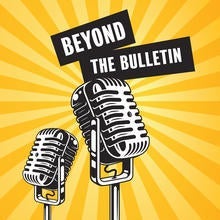
The latest episode of the Beyond the Bulletin Podcast is now live. The School of Pharmacy’s Wasem Alsabbagh discusses what led to the opioid crisis, who’s affected and ways to get us out of it. The University suspended its mask requirement following a number of similar changes to mask mandates at the municipal and provincial levels. Waterloo students had the privilege of participating in a live virtual address from Volodymyr Zelenskyy, the president of Ukraine. St. Paul's University College will change its name. And a pilot interdisciplinary undergraduate course will focus on the wicked problem of climate change.
Link of the day
Former Japanese Prime Minister Shinzo Abe assassinated
When and Where to get support
Students can visit the Student Success Office online for supports including academic development, international student resources, immigration consulting, leadership development, exchange and study abroad, and opportunities to get involved.
Instructors looking for targeted support for developing online components for blended learning courses, transitioning remote to fully online courses, revising current online courses, and more please visit Agile Development | Centre for Extended Learning | University of Waterloo (uwaterloo.ca).
Instructors can visit the Keep Learning website to get support on adapting their teaching and learning plans for an online environment.
Course templates are available within your course in LEARN to help you build and edit your content and assignment pages quickly.
The following workshops, webinars, and events are offered by the KL team (CTE, CEL, ITMS, LIB):
-
Scholarship of Teaching and Learning (SoTL) Methods – self-directed, continuous self-enrollment course in LEARN.
-
Independent Blended Course Design (iBlend) - self-directed, continuous self-enrollment course in LEARN.
-
Copyright Overview for Waterloo Instructors and Staff - self-directed, continuous self-enrollment course in LEARN.
-
Independent Remote Course Design Essentials (iReCoDE) - self-directed, continuous self-enrollment course in LEARN.
-
Supporting Student Mental Health (for Instructors) – self-directed, continuous self-enrollment course in LEARN.
-
WAI Inspired Wednesdays: Enabling the uptake of feedback (CTE7010) – July 13, 10:00 a.m. to 12:00 noon
-
SoTL Stories – July 13, 1:00 p.m. to 2:00 p.m.
-
WAI Inspired Wednesdays: Redesigning Assignments from a Remote Offering to a Flipped Course (CTE7010) – July 20, 10:00 a.m. to 12:00 noon.
Supports are available for employees returning to campus. Visit IST’s Hybrid Work and Technology guidelines and workplace protocols to assist with the transition.
The Writing and Communication Centre has in-person and virtual services to support grad and undergrad students, postdocs and faculty with any writing or communication project. Services include one-to-one appointments, drop-ins at Dana Porter Library, online workshops, writing groups, English conversation practice, and custom in-class workshops.
Co-op students can get help finding a job and find supports to successfully work remotely, develop new skills, access wellness and career information, and contact a co-op or career advisor.
The Centre for Career Action (CCA) has services and programs to support undergrads, grad students, postdocs, alumni, and employees in figuring out what they value, what they’re good at, and how to access meaningful work, co-op, volunteer, or graduate/professional school opportunities. Questions about CCA's services? Live chat, call 519-888-4047, or stop by our front desk in the Tatham Centre 8:30 a.m. to 4:30 p.m., Monday to Friday.
Drop-in to Warrior Virtual Study Halls on Wednesdays from 5:30 p.m. to 7:00 p.m. Come together in this virtual space to set goals and work independently or in groups each week.
Renison's English Language Institute continues to offer virtual events and workshops to help students practice their English language skills.
If you feel overwhelmed or anxious and need to talk to somebody, please contact the University’s Campus Wellness services, either Health Services or Counselling Services. You can also contact the University's Centre for Mental Health Research and Treatment. Good2Talk is a post-secondary student helpline available to all students.
The Library is open with expanded hours for access to book stacks, drop-in individual study space, bookable group study rooms, drop-in access to computers and printers, book pick-up services and IST Help Desk support. Librarian consultations, Special Collections & Archives and the Geospatial Centre are available by appointment. Full details on current services and hours are available on the Library’s COVID-19 Update webpage.
The Faculty Association of the University of Waterloo (FAUW) continues to advocate for its members. Check out the FAUW blog for more information.
The University of Waterloo Staff Association (UWSA) continues to advocate for its members. Check out the UWSA blog for more information.
The Sexual Violence Prevention and Response Office (SVPRO) supports all members of the University of Waterloo campus community who have experienced, or been impacted, by sexual violence. This includes all students, staff, faculty and visitors on the main campus, the satellite campuses, and at the affiliated and federated Waterloo Institutes and Colleges. For support, email: svpro@uwaterloo.ca or visit the SVPRO website.
The Office of Indigenous Relations is a central hub that provides guidance, support, and resources to all Indigenous and non-Indigenous campus community members and oversees the University's Indigenization strategy.
The Waterloo Indigenous Student Centre, based at St. Paul’s University College, provides support and resources for Indigenous students, and educational outreach programs for the broader community, including lectures, and events.
WUSA supports for students:
Peer support - MATES, Glow Centre, RAISE, Women’s Centre - Visit https://wusa.ca/services/wusa-peer-support to book an appointment either in person or online for the Fall term.
Food Support Service food hampers are currently available from the Turnkey Desk 24/7 in the Student Life Centre. Drop off locations are also open again in SLC, DC, DP, SCH and all residences.
Co-op Connection all available online. Check https://wusa.ca for more details.
Centre for Academic Policy Support - CAPS is here to assist Waterloo undergraduates throughout their experience in navigating academic policy in the instances of filing petitions, grievances and appeals. Please contact them at caps@wusa.ca. More information is available.
WUSA Student Legal Protection Program - Seeking legal counsel can be intimidating, especially if it’s your first time facing a legal issue. The legal assistance helpline provides quick access to legal advice in any area of law, including criminal. Just call 1-833-202-4571.
Empower Me is a confidential mental health and wellness service that connects students with qualified counsellors 24/7. They can be reached at 1-833-628-5589.
GSA-UW supports for graduate students:
The Graduate Student Association (GSA-UW) supports students’ academic and social experience and promotes their well-being.
Advising and Support - The GSA advises graduate students experiencing challenges and can help with navigating university policies & filing a grievance, appeal, or petition.
Mental Health covered by the Health Plan - The GSA Health Plan now has an 80 per cent coverage rate (up to $800/year) for Mental Health Practitioners. Your plan includes coverage for psychologists, registered social workers, psychotherapists, and clinical counselors.
Dental Care - The GSA Dental Plan covers 60 to 70 per cent of your dental costs and by visiting dental professionals who are members of the Studentcare Networks, you can receive an additional 20 to 30 per cent coverage.
Student Legal Protection Program - Your GSA fees give you access to unlimited legal advice, accessible via a toll-free helpline: +1-833-202-4571. This advice covers topics including housing disputes, employment disputes, and disputes with an academic institution.
The Graduate House: Open Monday to Tuesday 11:30 a.m. to 7:00 p.m. and Wednesday to Friday 11:30 a.m. to 9:00 p.m. We’re open to all students, faculty, staff, and community members. The Graduate House is a community space run by the GSA-UW. We’re adding new items to the menu. Graduate students who paid their fees can get discounts and free coffee.
When and Where (but mostly when)
Warriors vs. Laurier Blood Donation Battle. Join our “Waterloo Warriors” team on the Blood.ca website or app. #ItsInYouToGive
Warriors Custom Apparel Program, June 22 – July 13. Purchase customized team specific gear to get ready for the 2022-2023 season. Hoodies, Hats, Jerseys, T-shirts and more. Buy now.
Warriors Youth Summer Day Camps, July 4 to September 2. Open to boys and girls age 5-18. Baseball, Basketball, Football, Hockey, Multi-Sport and Games & Volleyball. Register today.
WISE Workshop, “Introduction to Feedback-Based Optimization and Applications to Energy Systems” by Daniel Eduardo Olivares Quero, Monday, July 11, 9:00 a.m. to 4:00 p.m., In-person at Evolv1 Classroom.
Visiting Professor Catherine Le Visage presents “Forgoing animal experiments: a case study in intervertebral disc regenerative medicine”, Thursday July 14, 3:30 p.m. to 4:30 p.m., E6-2024. Light refreshments provided. Please register here.
Concept $5K Finals, Thursday, July 14.
NEW - Master of Taxation Virtual Information Session, Tuesday, July 19, 5:30 p.m.
PhD oral defences
School of Public Health Sciences. Melanie Cousins, "The Role of Executive Functions and Emotion Knowledge in Children’s Communication." Supervisor, Shannon Majowicz. Email Health Graduate Administration for a copy. Oral defence Wednesday, July 13, 4:00 p.m.
Kinesiology and Health Sciences. Matteo Ponzano, "Risk Assessment and Interventions for Individuals at Risk of Osteoporotic Fractures." Supervisor, Lora Giangregorio. Email Health Graduate Administration for a copy. Oral defence Thursday, July 14, 1:00 p.m.
Environment, Resources and Sustainability.Erin Mills,“Drivers and Implications for Water Governance: A case study of the western Lake Erie basin”. Supervisor, Robert de Loë. Available upon request from the Faculty of Environment, Administrator, Graduate Studies. Oral defence Monday, July 18, 2:00 p.m.
Philosophy. Samantha Lynne Sargent, "The Techno-Inclusive Model of Disability: Motivations, Influences, and Applications." Supervisor, Chris Lowry. Available upon request from the Faculty of Arts, Graduate Studies and Research Officer. Oral defence Tuesday, July 26, 1:00 p.m., PAS 2464 (hybrid)